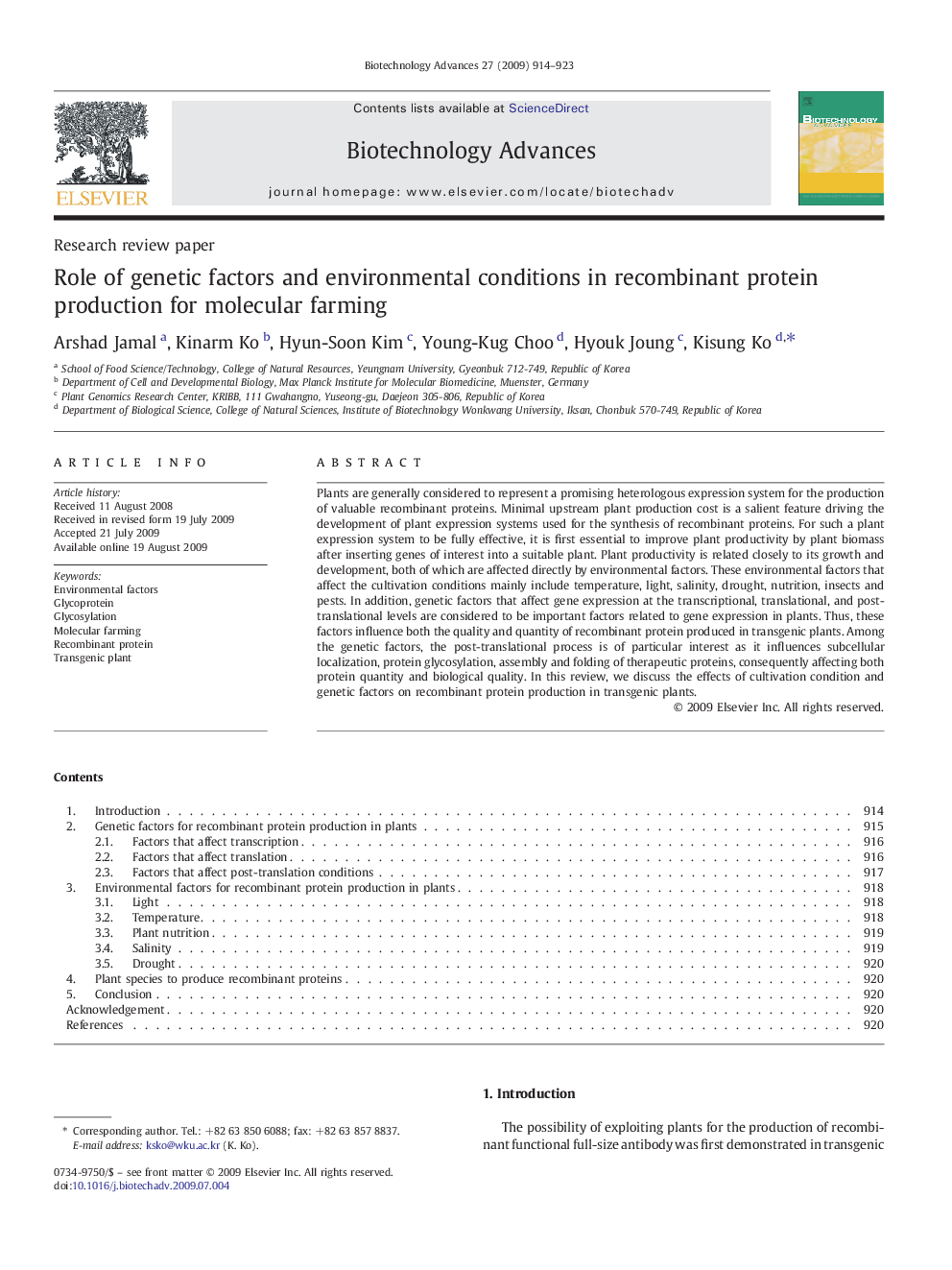| Article ID | Journal | Published Year | Pages | File Type |
|---|---|---|---|---|
| 14661 | Biotechnology Advances | 2009 | 10 Pages |
Plants are generally considered to represent a promising heterologous expression system for the production of valuable recombinant proteins. Minimal upstream plant production cost is a salient feature driving the development of plant expression systems used for the synthesis of recombinant proteins. For such a plant expression system to be fully effective, it is first essential to improve plant productivity by plant biomass after inserting genes of interest into a suitable plant. Plant productivity is related closely to its growth and development, both of which are affected directly by environmental factors. These environmental factors that affect the cultivation conditions mainly include temperature, light, salinity, drought, nutrition, insects and pests. In addition, genetic factors that affect gene expression at the transcriptional, translational, and post-translational levels are considered to be important factors related to gene expression in plants. Thus, these factors influence both the quality and quantity of recombinant protein produced in transgenic plants. Among the genetic factors, the post-translational process is of particular interest as it influences subcellular localization, protein glycosylation, assembly and folding of therapeutic proteins, consequently affecting both protein quantity and biological quality. In this review, we discuss the effects of cultivation condition and genetic factors on recombinant protein production in transgenic plants.
